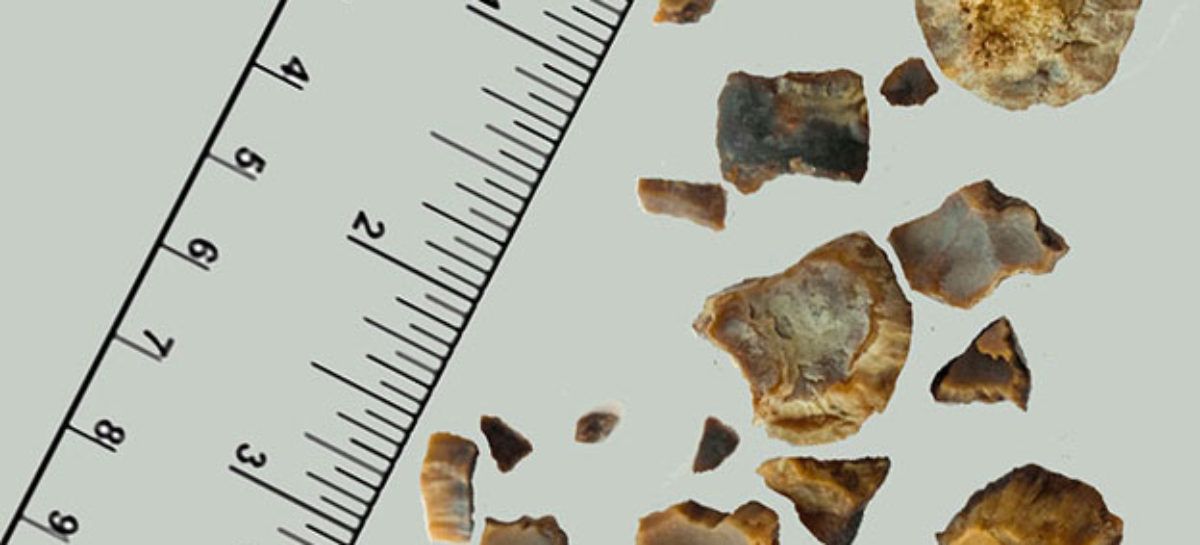Kidney stones are an increasingly common medical condition across the globe. There is no single definitive cause for the condition to develop – anyone, at any age, irrespective of overall health status, can develop kidney stones.Development of these stones is often more common in men than in women.Kidney stones form when the urine contains excessive quantities of substances such as uric acid, calcium and oxalate. In such cases the urine cannot dilute or absorb these substances fully so that some amount remains in the kidneys.Over time, the crystals start to stick together and slowly form into stones.
The common risk factors for developing this condition are:
- A previous kidney stone problem
- Genetic factors– If a blood relative has kidney stones, your chances of facing the same problem increases
- Not consuming enough water regularly to flush out the kidneys. People living in warm humid climates must take extra care to prevent dehydration
- Having a diet that is high in protein, sodium or sugar
- Being overweight
- Having suffered from kidney diseases in the past
- Having had gastric or intestinal surgery
- Having high levels of calcium, acid and other elements in the urine
- Medical conditions that cause irritation of the bowels
- Consuming certain types of medication
Types Of Stones And Specific Risks
There are different types of kidney stones and each one has its specific risk factors. The most common are:
- Calcium Stones: These are the most common type of stones and are made up of calcium oxalate which occurs naturally in various types of food. It is also produced by the liver. Excess of vitamin D, metabolic disorders and intestinal surgery increase the possibility of calcium oxalate build up which may turn into stones.
- Uric Acid Stones:High uric acid levels which lead to stone formation is common among people who do not drink adequate quantities of water or have diets that are high in protein. Genetic factors also influence the likelihood of developing this type of stone.
- Cystic Stones:These are caused by a hereditary condition that causes the kidneys to excrete excessive amounts of an amino acid called cystinuria.
- Struvite Stones:An infection in the urinary tract can cause these stones to form. They develop very quickly and can become very large, often with little or no warning.
When To Consult A Doctor
The following symptoms could be a sign of the presence of kidney stones. The sooner kidney stones are detected, the sooner treatment can begin. Symptoms include:
- Difficulty in passing urine
- Blood in the urine
- Severe pain that is so bad even sitting still is difficult
- Pain along with nausea and vomiting
If you have any or all of these symptoms, make an appointment at a reputed hospital with a specialization/center of excellence in nephrology/urology. You will be diagnosed and treated by the best specialists who have the latest equipments and perform medical procedures at their disposal to ensure that you receive the best possible care.
Kauvery Hospital is globally known for its multidisciplinary services at all its Centers of Excellence, and for its comprehensive, Avant-Grade technology, especially in diagnostics and remedial care in heart diseases, transplantation, vascular and neurosciences medicine. Located in the heart of Trichy (Tennur, Royal Road and Alexandria Road (Cantonment), Chennai, Hosur, Salem, Tirunelveli and Bengaluru, the hospital also renders adult and pediatric trauma care.
Chennai – 044 4000 6000 • Trichy – Cantonment – 0431 4077777 • Trichy – Heartcity – 0431 4003500 • Trichy – Tennur – 0431 4022555 • Hosur – 04344 272727 • Salem – 0427 2677777 • Tirunelveli – 0462 4006000 • Bengaluru – 080 6801 6801



